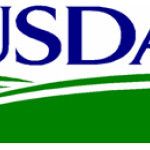- Industry: Government
- Number of terms: 41534
- Number of blossaries: 0
- Company Profile:
Pollutants that are not discharged or emitted from a specific "point" source, such as a pipe or smokestack. Nonpoint water pollutants are often carried from dispersed, diverse sources into water channels by rain-induced runoff. Runoff from streets, open pit and strip mines, and agricultural fields are prominent examples (see agricultural pollution). Nonpoint source air pollutants (often called fugitive emissions) include small dispersed sources, e.g., fireplace smoke, and uncontained emissions, like dust blown from fields and unpaved roads.
Industry:Agriculture
Producers who grow a crop that is currently not eligible for crop insurance may be eligible for a direct payment under the Farm Service Agency’s noninsured assistance program (NAP). NAP has permanent authority under the Federal Crop Insurance Reform Act of 1994 and was designed to replace ad-hoc farm disaster legislation that was enacted nearly every year between 1988 and 1993. For a producer of an noninsured crop to become eligible for a payment, area-wide losses for that crop must be at least 35% of normal yields. Once the 35% area-wide threshold is reached, an individual producer must then experience a minimum crop loss of 50%. A noninsured producer then receives a payment comparable to an insured producer under catastrophic crop insurance coverage — 60% of the market price on losses in excess of 50%. A producer of a noninsured crop is subject to a payment limit of $100,000 per person and is ineligible for a payment if the producer’s qualifying gross revenues exceed $2 million.
Industry:Agriculture
includes all income from nonfarm sources (excluding money earned from working for other farmers) received by farm operator households.
Industry:Agriculture
A term used by the Economic Research Service in its reporting of agricultural trade statistics to refer to imports of commodities not produced in the United States. Commodities such as tea, bananas, or coffee are considered noncompetitive imports. In contrast, imported commodities that are also produced in the United States are referred to as competitive imports.
Industry:Agriculture
Commodities other than basic commodities for which USDA is authorized to provide price support in permanent law. This includes soybeans and other oilseeds, milk, sugar beets, and sugarcane.
Industry:Agriculture
A method of planting crops that involves no seed bed preparation other than opening the soil to place individual seeds in holes or small slits; usually no cultivation during crop production; chemical weed control is normally used. May also be referred to as slot tillage or zero cultivation. See, for comparison, conservation tillage and minimum tillage.
Industry:Agriculture
From long-term toxicological studies of agricultural chemical active ingredients, levels which indicate a safe, lifetime exposure level. Used in setting pesticide residue tolerances.
Industry:Agriculture
An overall policy goal for wetland protection first adopted by the Bush Administration, and more recently by the Clinton Administration. The goal is to halt the decline in the overall number of wetland acres in the country. It refers only to acres and does not compare the functions and values of wetlands gained and lost. Also, this goal does not address the question of whether it is acceptable to destroy some wetlands if at least the same number of acres are created or restored at another site. Currently there are about 100 million wetland acres, compared to about 200 million when the country was first settled.
Industry:Agriculture
P.L. 97-218 (July 20, 1982) required that the tobacco price support program operate at no net cost to taxpayers, other than for the administrative expenses common to all price support programs. To satisfy this mandate, sellers and buyers (including importers) of tobacco are assessed equally to build a capital account that is drawn upon to reimburse the Commodity Credit Corporation for any losses of principal and interest resulting from nonrecourse loans. Other provisions of this law provided for reducing the level of support for tobacco and made various modifications to the marketing quota and acreage allotment programs.
Industry:Agriculture
A provision requiring that a price support program be operated at no cost to the federal government. The No-Net-Cost Tobacco Act of 1982 required the participants in the 1982 and subsequent year tobacco programs to pay an assessment to cover potential losses in operating the tobacco price support program. The Food Security Act of 1985 required that USDA operate the sugar program at no cost. This provision applied through the 1996 crop year for the sugar crops, and was repealed by the FAIR Act of 1996. The 1996 changes to the peanut program are designed to ensure that it also operates at no cost.
Industry:Agriculture
